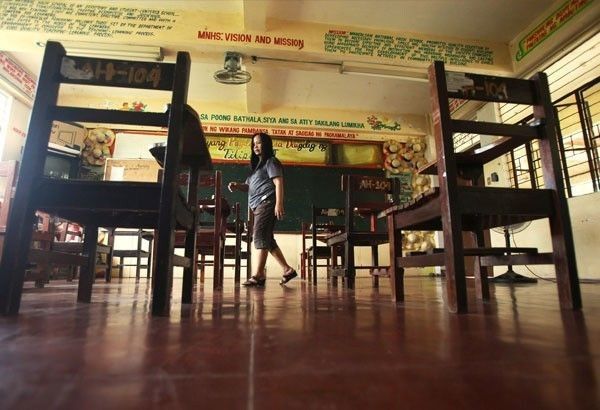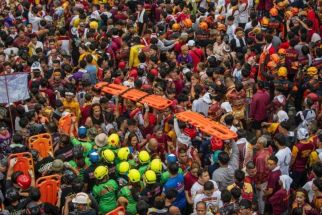DILG bucks resuming face-to-face classes

MANILA, Philippines — The Department of the Interior and Local Government (DILG) yesterday cautioned against “hasty” decisions to bring students back to classrooms, amid proposals for limited face-to-face classes that are being eyed to address learning hurdles besetting students whose parents are not equipped to teach their children at home.
Bringing students back to school while more than a thousand Filipinos are still testing positive for the coronavirus disease 2019 daily would be risky, according to Interior Secretary Eduardo Año, who cautioned legislators on such calls.
Año, who seemed concerned that the government would draw blame for a possible spike should students return to classrooms, added that those pushing for the measure would not be the ones facing calls for accountability.
“What we’re saying is let’s not rush this, because the question here is, while there are those calling for this (measure), who would be responsible for that? You’re quick to recommend it, but it would turn out you don’t have a responsibility for that,” Año said in a radio interview.
“Should there be a spike, would you be the one treating (those infected)? Would you be the one shouldering the costs? Second, who will be held accountable?” he added, addressing proponents of limited face-to-face schooling.
Last week, senators called for limited face-to-face learning, including the Senate committee on basic education’s chairman Sen. Sherwin Gatchalian.
Localized and limited face-to-face schooling would address apprehensions about learning retention from the current distance learning mode, according to the Gatchalian.
Senators also cited that maybe, the government could facilitate the move, considering that the country’s COVID-19 situation has “dramatically improved,” with establishments like cockpits having reopened and travel for tourism having resumed.
Año, vice chairman of the country’s National Task Force against COVID-19, said it would be difficult to enforce health protocols with millions of students being sent to school.
“We’re talking of millions of students here, so we won’t be able to control that. But when you say selected, what would be your criteria?” he added, saying even President Duterte had said no face-to-face classes would take place until the end of this year.
It is better for the government to sit the measure out until January next year, when “many changes have already taken place,” according to the DILG chief.
Blended learning was implemented this school year as face-to-face classes have been suspended for the rest of the year due to the risks of the coronavirus contagion.
The Department of Education (DepEd) had earlier said it was studying the possibility of a slow return to the actual classroom next year.
‘Spare education from politics’
Meanwhile, Vice President Leni Robredo yesterday called on critics of the Community Learning Hubs, a program initiated by her office, to spare the education sector from politics.
“If there is something that needs to be insulated from politics, it’s education. Education and health must be insulated from politics,” Robredo said over radio station dzXL.
The Vice President made the statement after the DepEd distanced itself from the establishment of Community Learning Hubs in selected areas amid criticisms that these allow limited face-to-face classes despite the threat of COVID-19.
The Office of the Vice President (OVP), in partnership with some local government units, launched the learning hubs last month to assist students in distance learning classes.
The facility provides a space in local governments for students to use gadgets and connect to the internet. The hubs also have volunteer tutors to help the limited number of students.
“DepEd Secretary (Leonor) Briones’ boss are the children who need to learn, the teachers who need help, not the President. To me, it is true that the President appointed her, but I hope she defends those children who need help, those teachers who need help. It should not be blind obedience,” Robredo said in Filipino.
“Most of those who go to centers are the ones who need help, those who cannot read yet,” she added.
In a press briefing last week, Briones said she did not allow the conduct of face-to-face classes through the Community Learning Hubs.
“It’s true that face-to-face classes are prohibited, that’s why we look for ways to help difficult learners,” Robredo said.
The Vice President added that the OVP has so far opened 12 hubs, serving around 2,000 students. – Helen Flores
- Latest
- Trending






























